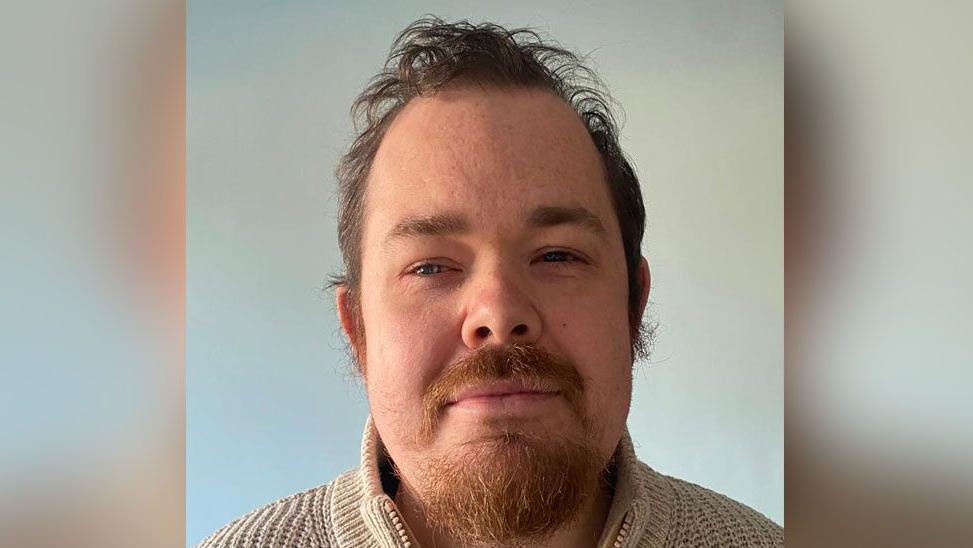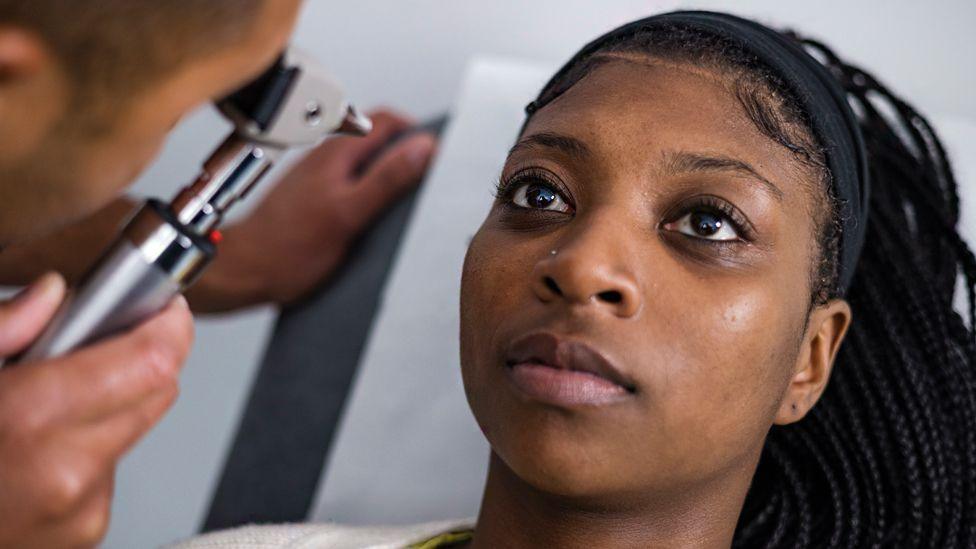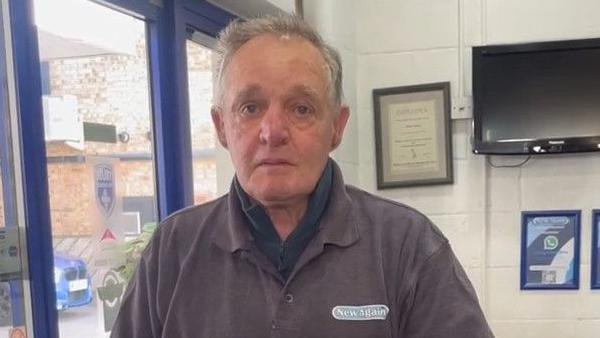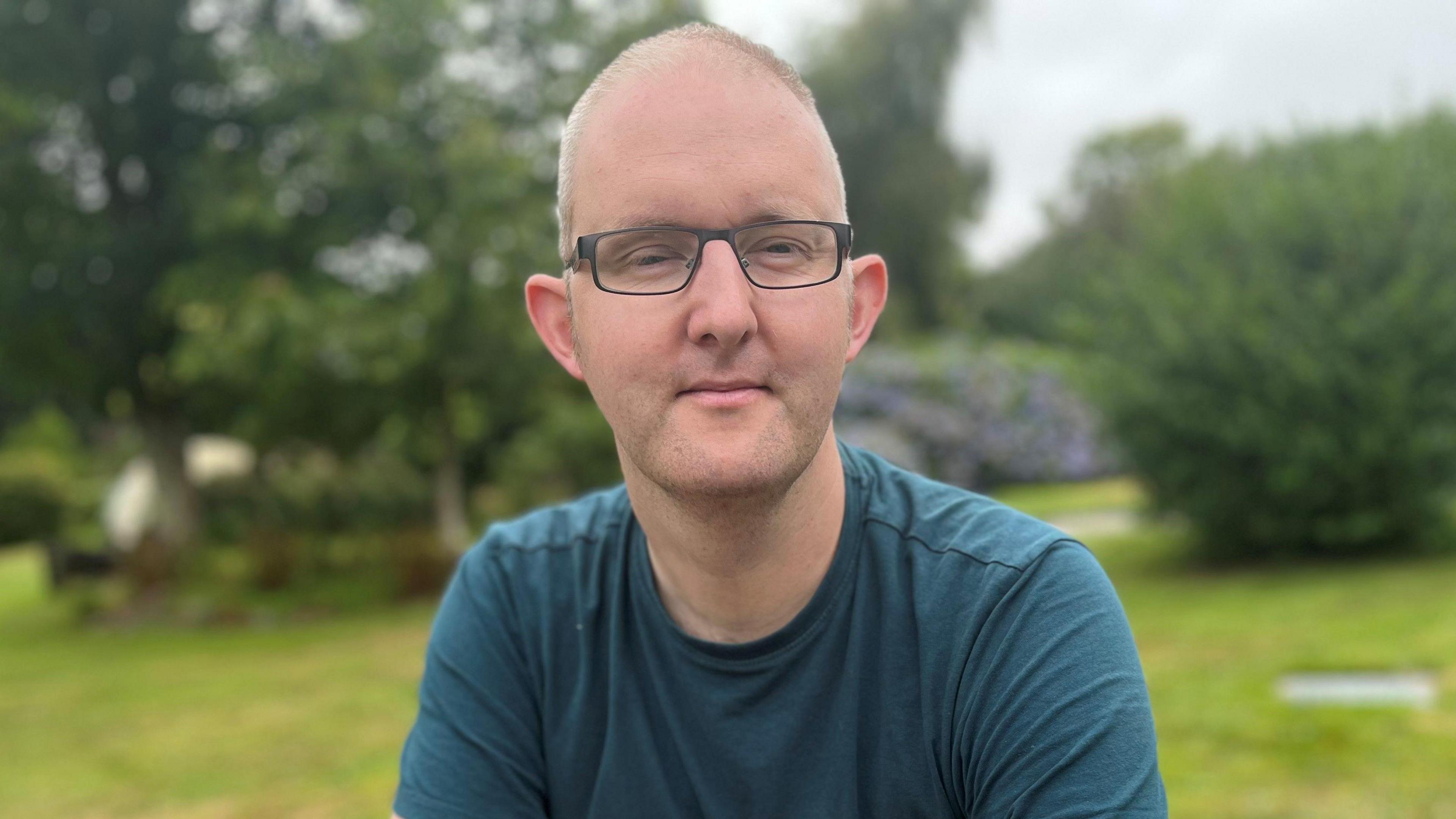'I never expected I would get to 29 and not see'

Lee Mercer went blind in 2019 at the age of just 29
- Published
A man who was sitting in his office when he lost his vision has urged people with diabetes to be vigilant about their eye health.
Lee Mercer, 35, from Leigh-on-Sea, Essex, lost his sight in 2019 due to proliferative diabetic retinopathy, external, meaning there were ruptured blood vessels in his eyes caused by his type 1 diabetes.
Mr Mercer said he had a sense of invincibility and perhaps did not make the lifestyle choices he should have done, warning others to look after themselves as well as they can.
"I never expected that I would get to 29 and suddenly not be able to see," he said.
Before losing his sight, Mr Mercer worked in finance and said: "I lived a very typical, very normal life. I lived in my flat and went to work every day.
"When it actually happened, I don't think I processed it for a while because I was sitting in my office when my eyesight went."
Mr Mercer said he felt a lot of misplaced anger about the situation.
"Suddenly I couldn't do things I took for granted - I couldn't jump in the car and go somewhere, I couldn't go out for a walk, I couldn't pick up a book and relax how I used to."
However, he has since made peace with himself. "I can't change it, so why worry about it."
'I thought I was invincible'
Mr Mercer was diagnosed with diabetes aged 11 and said he brushed aside many of the health implications.
"There was a feeling that I was invincible and any problems I had to deal with much further down the line."
He did go for regular eye tests, but wondered if he should have watched his condition better and been more careful with what he ate.
The NHS says if you are diagnosed with diabetic retinopathy after diabetic eye screening, lifestyle changes and treatment can reduce the chance of the problem progressing.
"I went to the screenings for diabetic retinopathy. I was almost due my next one in the next couple of months when my eyesight did eventually go," he said.
"It was just, call it unlucky. The final one that I went for didn't show any significant changes that they were worried about. The time in between was when a significant enough change did happen."

Lee Mercer has urged people to get regular eye tests and not miss any because they are too busy
In recent times Mr Mercer has been working with Essex Cares Limited (ECL), external, which was established by Essex County Council. Its sensory service helps people with sight and hearing loss.
He regained his independence through its help and now shares his story as a volunteer.
Offering his advice, he said people with diabetes should "make sure that you do keep on top of those check-ups, medication and reporting any changes".
Get in touch
Do you have a story suggestion for Essex?
Follow Essex news on BBC Sounds, Facebook, external, Instagram, external and X, external.
Related topics
You may also be interested in
- Published25 September 2024

- Published23 September 2024

- Published13 August 2024
